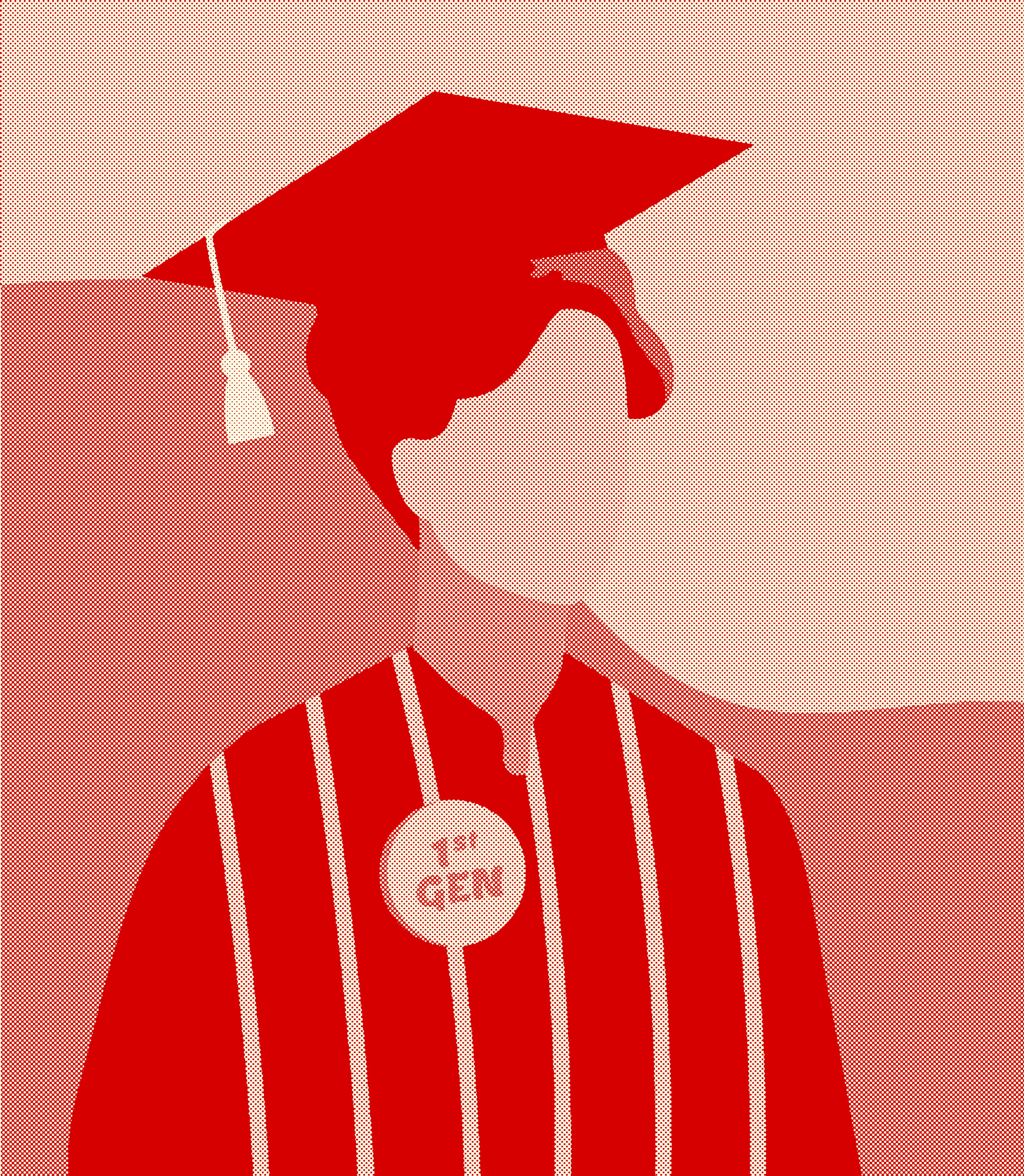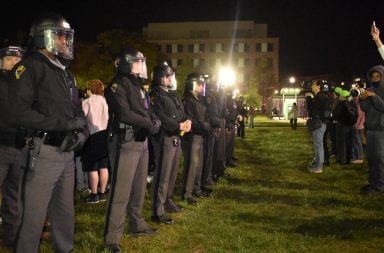
Graduation is especially significant for first-generation students, who have endured numerous obstacles to get to college and finish college. Credit: Abby Fricke | Managing Editor for Design
Turning the tassel is a significant moment for everyone, especially for those first in their family to ever do so.
First-generation students, or students whose parents didn’t complete a four-year degree, often encounter financial and informational barriers that make getting to college an obstacle and graduating even moreso. In 2020, 19% of the anticipated class of 2024 was first-generation, according to the Office of Academic Affairs.
“I was granted a once-in-a-lifetime opportunity to break generational curses,” Brian Finley, a graduating fifth-year in air transportation, said.
As graduating first-generation students prepare to leave campus, many reflected on the obstacles they encountered, and how they prevailed to ultimately earn their degrees.
“Attending college as a first-gen student presented its own set of hurdles, from adjusting to the academic environment to navigating the social aspects of campus life,” Sarah Al-Hashemi, a fourth-year in public health, said. “Despite the obstacles, I like to think that I approached each challenge with determination knowing that my education was not only for myself but also for my family.”
The experiences of first-generation students are defined by their families, and this is often translated into feelings of high pressure, according to Aalissia Thomas, a graduating third-year in psychology.
“It’s hard to lean on our families and going [to college] has all of these unsaid expectations,” Thomas said. “Being the one whose experience will determine if your family goes to college is hard. It’s a feeling only a first-gen can explain.”
Thomas said first-generation students can also struggle to share their collegiate difficulties with family, creating a sense of isolation and causing them to search for an alternative support system.
“While my family has encouraged me every step of the way, they often don’t know what to say, or what I’m even talking about,” Thomas said. “I remember having financial aid issues, and the first thing I did was call my mom. By the time I had explained to her what the process was, I was more upset than when the issue started, which is no fault to her, it’s just our reality. I’m the first to go to college and teach them as I learn.”
For Thomas, she felt like she was not only teaching her family about college but also herself, which she viewed as her “main obstacle.”
“Most students learn how to study and take notes, but for me, I had to learn true independence because I had no one to tell me about what they experienced in college, how they messed up and how I will sometimes,” Thomas said.
Navi Draper, a graduating third-year in social work, encountered similar problems regarding familial advice during the undergraduate process.
“When you’re a first-gen, you must look for outside resources because just like college is new to you, it is new to your family also,” Draper said.
Al-Hashemi said she had to find resources at Ohio State to be successful.
“I found myself navigating this process largely on my own initiative and with reliance on external resources,” Al-Hashemi said. “While these challenges initially seemed daunting, they fostered a sense of independence, resilience and resourcefulness. I was able to learn how to proactively seek out information and utilize available resources.”
A popular resource for first-generation students is the Young Scholars Program. According to the website, the program offers precollege preparation, group and one-on-one mentorships, guided major and career exploration and college planning tools.
Other students, like Finley, have benefited from the Young Scholars Program within the Office of Diversity and Inclusion, which walks low-income, first-generation students through the college application process and offers a community as well as resources for these students once they come to Ohio State.
For Finley, the scholars program was “paramount” in his journey as a first-generation student.
“Applying to college was relatively easy due to my Young Scholars Program city coordinator helping me,” Finley said. “YSP does a really good job at transitioning students and helping them navigate things.”
Al-Hashemi is also a member of the program and said the workshops offered by it and the Office of Diversity and Inclusion played a “pivotal role” in helping her adjust to college life.
“ODI offered a variety of workshops and informational sessions that were tailored to the needs of first-gen students like myself. These sessions covered a wide range of topics, from academic skills to career development,” Al-Hashemi said. “You are not alone in your journey. There are numerous resources available on campus to support you.”
Draper said making sure that students prioritize their mental health is important for first-generation students.
“Take time for yourself and never stop doing the things you love,” Draper said. “You are here for a reason. Everyone has a reason. Never lose sight of that reason.”
Both Al-Hashemi and Thomas advised creating a support system early, either through friendships or mentorships.
“Establish your support system as soon as possible. People with college experience, older peers, anyone, that way when things get hard you have people to turn to,” Thomas said.
Al-Hashemi also said to “never underestimate” connecting with other first-generation students.
“You may find strength and support in sharing experiences and strategies with peers who are navigating similar challenges as you,” Al-Hashemi said.
Despite the obstacles that accompany first-generation students, they must remain resilient, Finley said.
“Stay unconquerable. There will be many things that will try to derail you, but you have to keep pushing. Everyone’s journey is different, it took me five years to graduate, but it’s all about finishing the race and staying motivated,” Finley said.


